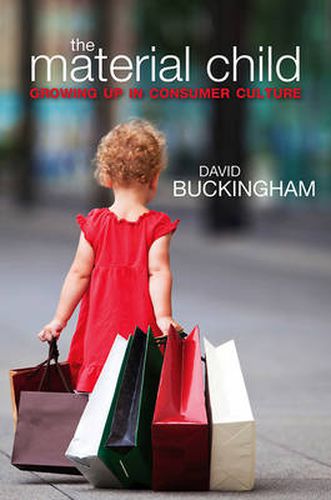Readings Newsletter
Become a Readings Member to make your shopping experience even easier.
Sign in or sign up for free!
You’re not far away from qualifying for FREE standard shipping within Australia
You’ve qualified for FREE standard shipping within Australia
The cart is loading…






Children today are growing up in an increasingly commercialised world. But should we see them as victims of manipulative marketing, or as competent participants in consumer culture? The Material Child provides a comprehensive critical overview of debates about children’s changing engagement with the commercial market. It moves from broad overviews of the theory and history of children’s consumption to insightful case studies of key areas such as obesity, sexualisation, children’s broadcasting and education. In the process, it challenges much of the received wisdom about the effects of advertising and marketing, arguing for a more balanced account that locates children’s consumption within a broader analysis of social relationships, for example within the family and the peer group. While refuting the popular view of children as incompetent and vulnerable consumers that is adopted by many campaigners, it also rejects the easy celebration of consumption as an expression of children’s power and autonomy. Written by one of the leading international scholars in the field, The Material Child will be of interest to students, researchers and policy-makers, as well as parents, teachers and others who work directly with children.
$9.00 standard shipping within Australia
FREE standard shipping within Australia for orders over $100.00
Express & International shipping calculated at checkout
Children today are growing up in an increasingly commercialised world. But should we see them as victims of manipulative marketing, or as competent participants in consumer culture? The Material Child provides a comprehensive critical overview of debates about children’s changing engagement with the commercial market. It moves from broad overviews of the theory and history of children’s consumption to insightful case studies of key areas such as obesity, sexualisation, children’s broadcasting and education. In the process, it challenges much of the received wisdom about the effects of advertising and marketing, arguing for a more balanced account that locates children’s consumption within a broader analysis of social relationships, for example within the family and the peer group. While refuting the popular view of children as incompetent and vulnerable consumers that is adopted by many campaigners, it also rejects the easy celebration of consumption as an expression of children’s power and autonomy. Written by one of the leading international scholars in the field, The Material Child will be of interest to students, researchers and policy-makers, as well as parents, teachers and others who work directly with children.